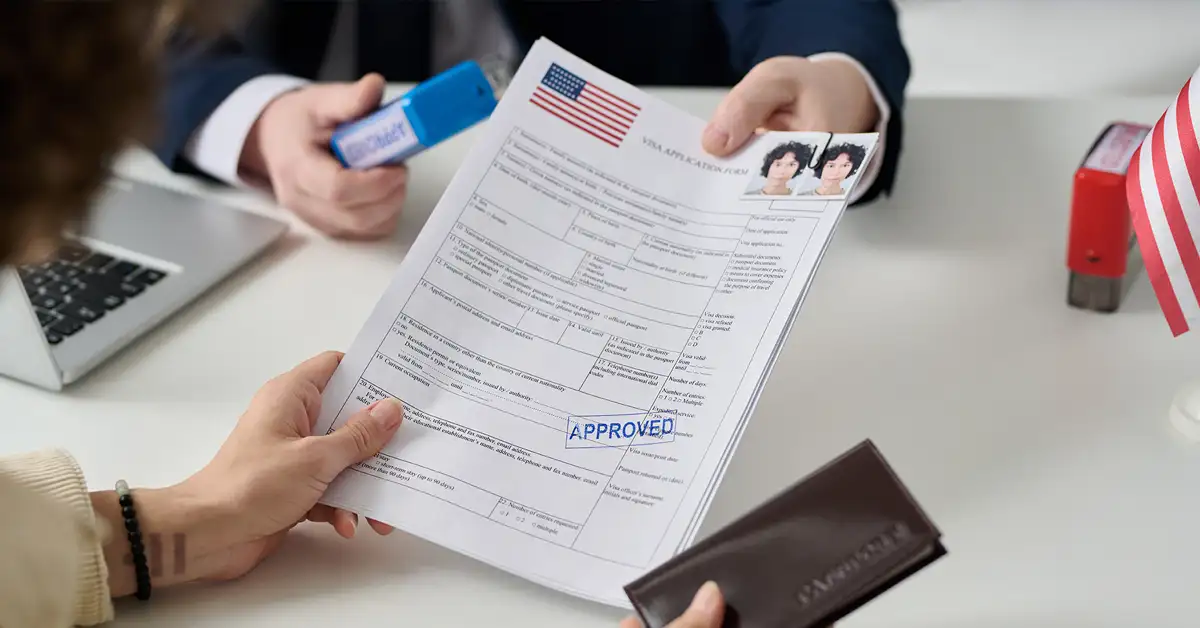If you plan to travel outside the United States and return, it’s essential to have the proper travel documents. The type of document you need depends on your immigration status and whether you have a pending immigration benefit request. In most cases, you must apply for and obtain a travel document before leaving the country.
Types of Travel Documents
There are several types of travel documents, including:
- Advance Parole Document: This document allows noncitizens in the United States to return after temporary travel abroad. It is commonly used when someone has a pending Form I-485 (Application to Register Permanent Residence or Adjust Status) or Form I-589 (Application for Asylum and Withholding of Removal).
- Refugee Travel Document: USCIS issues refugee travel documents to people with refugee or asylum status and to lawful permanent residents who obtained their Green Cards based on their refugee or asylee status.
- Reentry Permit: Permanent or conditional residents should apply for a reentry permit if they will be outside the United States for one year or more. A valid reentry permit allows you to apply for admission to the U.S. without obtaining a returning resident visa from a U.S. Embassy or Consulate.
- Temporary Protected Status (TPS) Travel Document: This document allows TPS beneficiaries to travel back to the United States and, if eligible, be inspected and admitted into TPS.
Applying for Travel Documents
To request travel documents, you must file Form I-131, Application for Travel Document. Be sure to consider USCIS processing times before planning your travel. If you have an urgent need to travel outside the United States, you may request expedited processing or emergency travel authorization.
Cautions and Considerations
Travel outside the United States may have severe immigration-related consequences. Even with the appropriate documents, admission or parole into the United States is not guaranteed. You are still subject to immigration inspection at a port of entry to determine your admissibility and eligibility for the immigration status you seek.
If you are a nonimmigrant and have filed Form I-539 (Application to Extend/Change Nonimmigrant Status) to change to a different nonimmigrant status, leaving the United States before USCIS makes a decision on your application may result in your application being considered abandoned.
For those with a pending Green Card application, leaving the United States without appropriate travel documentation may lead to being denied reentry and having your adjustment of status application considered abandoned.
If you have accrued unlawful presence or have a removal order, you may be found inadmissible if you seek admission after departing the United States, even if you have a travel document.
Carrier Documentation
If you are a permanent resident whose Green Card or reentry permit has been lost, stolen, or destroyed while outside the United States, you may need to file Form I-131A, Application for Travel Document (Carrier Documentation). This document allows an airline or other transportation carrier to board you for return to the United States.
FAQ
Do I need a travel document if I have a valid Green Card?
If you have a valid Green Card and plan to travel outside the United States for less than one year, you generally do not need a separate travel document. However, if you will be outside the U.S. for one year or more, you should apply for a reentry permit.
Can I leave the United States while my Form I-485 is pending?
If you depart the U.S. while your Form I-485 is pending without first obtaining advance parole, USCIS will deny your case unless you fit into a narrow exception for people with certain nonimmigrant statuses.
What happens if I leave the United States without a required travel document?
Depending on your situation, leaving the United States without the required travel document may result in being denied reentry, having your pending applications considered abandoned, or being found inadmissible.
Working closely with an experienced immigration attorney can help you navigate the immigration process and avoid pitfalls in your case. Our experienced immigration team is here for you.





